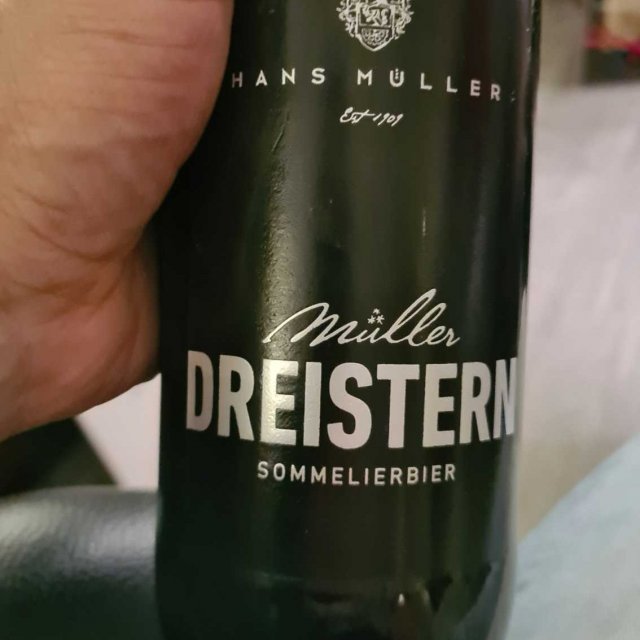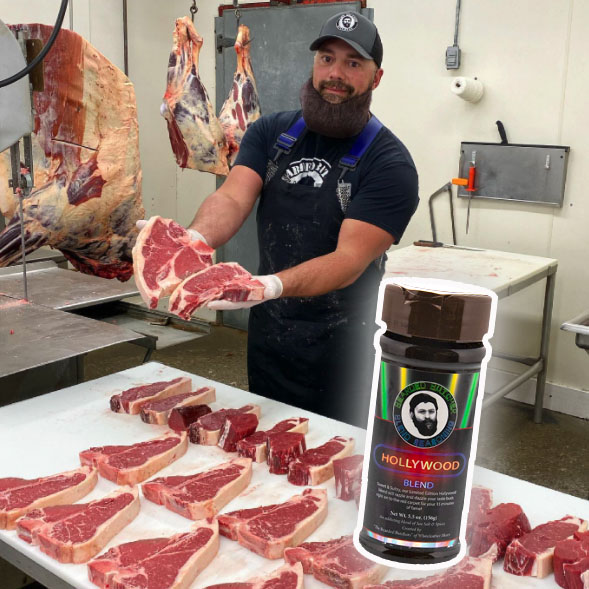
By: Pato Thornycroft
Working in all three factions of the craft-brewing scene in the Chicagoland area (bartending, managing, and occasionally working as assistant brewer) is a not so secret avenue for networking through the craft beer industry. Sometimes you are chatting with a person for a few minutes and then realize they are a sales rep for one of the Chicagoland breweries. Other times, you meet a fellow with a German accent and ask him to translate lyrics from a Punk band from Germany and it turns out that he is a Master Brewer and someone who challenged the foundations of brewing in Bavaria. This happened to be one of those instances. I was lucky to keep in touch with this gentleman and he returned to where I bartend to share a few minutes (and a few beers) talking about brewing, American influences, German hardships, and the growth of his company.
Christian Hans Muller
What is your full name and the brewery that you are affiliated with?
My name is Christian Hans Muller, of Hans Müller Sommelierbier, I am founder, owner, master brewer, everything. I am located in the south of Germany in Bavaria in an area between Frankfurt and Nuremberg.
Can you tell us about your Siebel institute experience in Chicago and how that influenced your brewing style in Germany? [Authors Note: My Midwestern Ethnocentrism leads me to believe that everyone in the beer world knows that the Siebel Institute is Americas oldest brewing school, and that deep dish pizza is the only acceptable style of pizza, but that is explained for those who do not know.]
I joined classes at Siebel institute to become a beer sommelier, and I chose Seibel because I was always interested in the American way of brewing and the American beer styles, I wanted to learn the way of American brewing.
Is there a craft beer scene in Germany similar to the American craft beer explosion?
There is a craft beer scene in Germany that is similar but not as huge as the scene America. We need to consider that the German craft beer scene is about 5 years behind the American craft beer scene regarding the development.
When you brought back American aspects of brewing back to Germany was it met with any dissidence?
When I came back from America and brought back all of these American brewing ideas with me, of course I had a lot of fights to fight. Especially against the Brewers Association in Bavaria, because Bavaria is a very conservative part of the country, very traditional. Now there is someone brewing in Germany beer using American aroma hops, dry hopping powerfully and that’s what they didn’t want to see. That caused some problems. They took me in front of the court, not because of the Purity Law, because I always brewed according to the Purity Law, but because they thought that my style of brewing was too creative for the Bavarian understanding of beer, and every one in Bavaria needs to follow some rules. That’s what they thought. They took me to court to stop by business, I didn’t plan on stopping, so I went to court, had a good lawyer and we found a way. Some rules say that Bavarian beer needs to be brewed from a majority of Bavarian raw materials, but not all Bavarian materials. Its no problem if you have five percent of American hops in the beer, so it remained a minority, not a majority. So the court decided I was right, and everything has gone through.
Do you feel as if the Purity Law and Brewers Association is a hindrance to the craft movement or upholding a high standard for German Brewing?
It is not really a hindrance, because in my opinion even the Purity Law can lead to a variety of creativity. There are some many kinds of hops, malts, and yeast, and so many possibilities to mix them to create a great number of brews. My mission is to show people how creative you can be within the Bavarian Purity Law.
What are we drinking tonight?
This is a beer called Bayerisch Nizza, which is a german expression which is roughly translated Bavarian Nice, which is a French town in Bavaria, which is absolutely ridiculous, but the town where I am from is called that because it is very warm there, so it is an honor to my hometown. But this is a typical Bavarian beer style, a Hefeweizen, which is powerfully dry hopped with three American hops; Citra, Centennial, and Chinook, which brings lots of new aromas to be the beer, grapefruit, and thyme, that’s very special and this is the beer that sent me to court. From this beers release, I was glad to receive the award from Ratebeer as the best new brewer of Bavaria.
Then there is Backbone Splitter IPA, this is a West Coast IPA, which is a typical California kind of India Pale Ale, and I was inspired by all of the California style of beers. SO I brewed a beer with only german malts pilsner, munich, and caramba and American hops Horizon, centennial, Amarillo, and Simcoe, and dry hopped with Falconer’s Flight. What came out was a very tropical fruity beer at 6.6% alcohol by volume.
I have started barrel aging, I made a Marzen aged in Brandy Barrels. Last year I made a collaboration brew a craft brewer from berlin, and we brewed a Russian Imperial Stout aged in Glen Moray barrels.
What have been your five favorite beers since returning to America?
My five favorite beers are Sculpin IPA from Ballast Point, as well as the new Goeze from Anderson Valley. Of course the Jack the Sipper from Lake Bluff Brewing Co, a Barrel Aged Barley Wine, which is awesome. Yesterday I went to the official opening of the Lagunitas Brewery and had Undercover Shutdown, which is a great one. A usual IPA but the story behind that is a great one. Then Green flash Saison Diego. I’m also into sour beer right now.
Anything from this trip to America that you will incorporate with your future brewing?
Yes, that’s the sour beers. Germany is close to Belgium, a nation that is traditionally exceptional at sour beers, nowadays though they don’t see themselves as a Craft Beer nation, but that doesn’t matter, they have good sour beers. So I am combining my influences from Belgium, my trip to America and my own ideas together to create a good range of sour beers this year. I also am inspired by dry hopped cider, which is something I will visit as a project next year.
Production
I am in a situation where I need to make some decisions, I am expanding at a good pace, but I need more people and more space, and I need to invest which is always hard. I need to find a facility where I can place a bottle shop, taproom, a small brewery, and an office, preferably in the middle of the town, where people can walk through. Then a second location with a production facility.
Final thoughts?
I like this place [Chicago], and I am looking forward to coming back, again, again, again, and again.
Christian Hans Muller spent a few more days attending industry events, tastings, and checking out Chicago taprooms and brewpubs. He has since returned back to his homeland to continue brewing and celebrate the German World Cup Victory.


